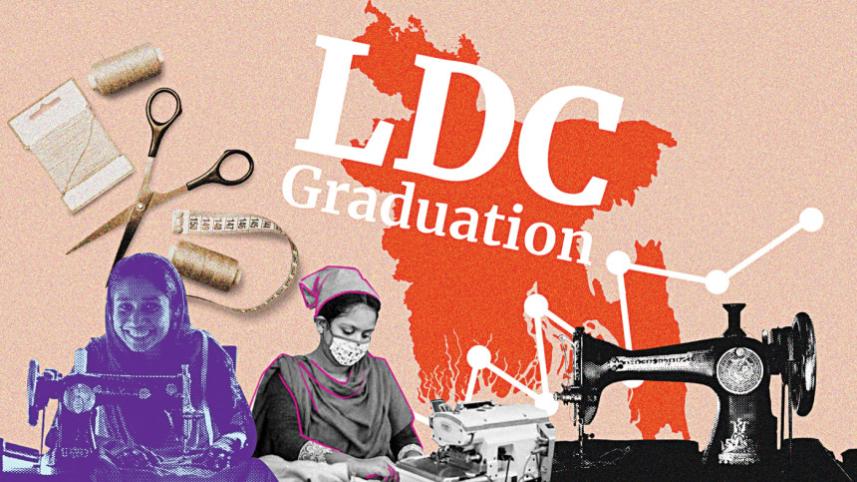UN to support Bangladesh’s LDC graduation readiness review

The United Nations (UN) will support an assessment of the country's readiness to graduate from the group of least developed countries (LDCs) in November next year, the Chief Adviser's Office said yesterday.
The review is expected to start within a month and conclude by mid-January 2026, according to UN Under-Secretary-General Rabab Fatima.
The move follows a formal request from the interim government, Fatima said during a meeting with Chief Adviser Prof Muhammad Yunus at his hotel in New York on Monday.
Fatima also serves as the UN High Representative for Least Developed Countries, Landlocked Developing Countries and Small Island Developing States.
According to the Chief Adviser's Office, the assessment will be carried out by an international consultant alongside a Bangladeshi expert to ensure a comprehensive and balanced evaluation.
It will involve broad consultations with key stakeholders, including government officials, business chambers, development experts, civil society leaders, donors, financial institutions and political representatives, to gauge whether Bangladesh is adequately prepared for the shift.
The announcement comes at a time when entrepreneurs, especially exporters and pharmaceutical producers, are urging the government to seek a deferral of the graduation by up to six years.
Industry leaders argue that preparations remain insufficient to cope with competition in global markets once Bangladesh moves into the developing country bracket.
The country's exports, which currently enjoy duty-free access to the European Union, are expected to face tariffs of up to 12 percent in the EU from 2029 when the three-year grace period on preferential treatment ends.
Shipments to Canada and Japan will also face higher tariffs, while pharmaceutical manufacturers will need to comply with international patent law, which could push up medicine prices.
Prof Yunus welcomed the readiness assessment, stressing the importance of evidence before making the transition.
"It has become an emotional issue," he said, underlining the need for data-driven decisions.
Fatima pointed out that the UN's most recent economic figures on Bangladesh are more than two years old.
"A lot has changed since then," she said, stressing the urgency of reassessing the country's current economic landscape.
Prof Yunus also voiced concern for the future of the pharmaceutical sector, which has long benefited from trade preferences linked to LDC status.
He said graduation could jeopardise the industry unless adequate transition measures are introduced, according to the statement.
Bangladesh was placed in the LDC category in 1975. It first met graduation criteria in 2018, and again in reviews in 2021 and 2024.



 For all latest news, follow The Daily Star's Google News channel.
For all latest news, follow The Daily Star's Google News channel.